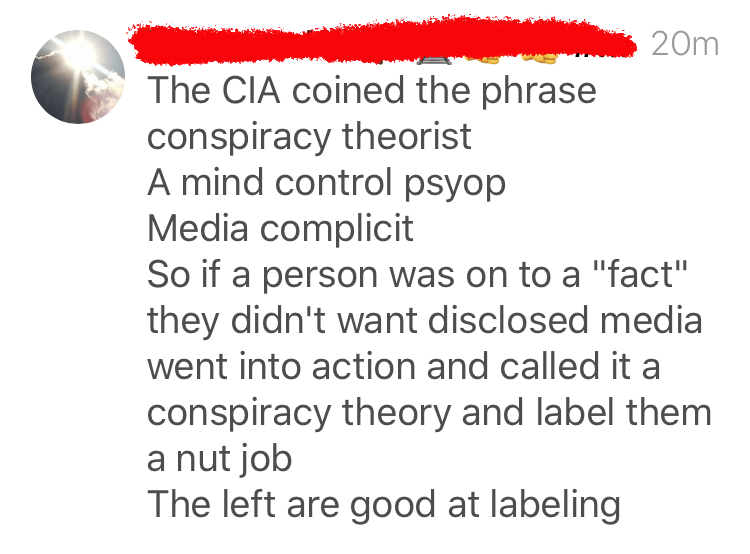
An often used talking point of the conspiracy crowd is to claim that the CIA (or the FBI in some more ignorant versions of the story) invented the term, “conspiracy theory” to make anyone who criticizes the “official story” look like they are nuts. Like so many things that conspiracists say, this simply isn’t true, and even some conspiracy true believers are willing to admit it, but then they put a different spin on the lie and claim instead that the CIA popularized the term and/or made it into a negative term, where it had previously been positive. Again, none of this is true.
When I first looked into this claim, I was focused on the text of the document and didn’t think at all about the number commonly associated with it. Conspiracy theorists call it, “CIA Dispatch 1035-960” or “CIA Document 1035-960,” and so did I, until I took a closer look at the document and realized that CTers hadn’t even gotten the name right.
Some of the CTers I have talked to, debated, or argued with — the ones who presented themselves as well read — try to back up their claims about the CIA and the term “conspiracy theory” by directing me to a book by the “historian” Lance DeHaven-Smith, Conspiracy Theory in America. Smith was a professor of public administration and policy at Florida State University who passed away in 2022. I don’t think there is anything wrong with people attempting to examine history without formal training as a historian, because that’s what I do, but it is indicative of CTer behavior to inflate their case by hyping up their alleged experts with credentials they do not have.
Any husker du, according to Smith:
CIA Dispatch 1035-960 appears to be a straightforward memo with clear language and reasonable motives, but it is actually a subtle document, conveying many of its messages by indirection and implication. To grasp the nuances in the text requires a very careful reading… Take, for example, the dispatch number. This is probably unimportant, but the number could have at least two meanings. Most people would assume “1035-960” is a number in a numbering and filing system. However, 1035-960 can also be read as, “1035 minus 960.” Who is to say the dash is just a dash and not a mathematical operator? Thus 1035-960 could mean “75,” which might refer to the seventy-fifth day of the year or something else.
Since making things up seems to have been Smith’s idea of a ‘careful reading,’ I decided to investigate what the number actually meant. It wasn’t hard. The number 1035-960 has nothing to do with the CIA. That is the number stamped on the document when it was released under the Freedom of Information Act, nine years after the dispatch was originally sent out. It is a FOIA number, given to documents when they are released to the public and tells us nothing about the original document in any way. I suspect that if I had talked with Smith, or an apologist for him, they would say something like, “Well, the book says, “This is probably unimportant,” so who cares?” But we should care, because the truth matters and you cannot trust people who put speculation before research; who substitute speculation for research. Yes, anyone could make a honest mistake and assume this number was part of the original document, as I did at first, but no actual researcher, investigator, journalist, historian, etc. would suggest that this number is mysterious and unknowable, simply for added effect. Anyone trying to do serious work, anyone who cares about the truth, would make every effort to learn about the number before offering any speculation about it. In academic circles, and Smith was a professor, this is unconscionable behavior that speaks to the true nature of his work and the conspiracist mindset he operated under.
Here’s the actual story, Morning Glory:
The CIA Dispatch “Countering Criticism of the Warren Report,” which became public in 1976 thanks to a Freedom of Information Act request from the New York Times, was originally sent out to foreign CIA offices in 1967. The document advised CIA Officers how to deal with conspiracy theorists who were spreading baseless allegations against President Johnson, the Warren Commission, and the entire US Government, regarding the assassination of President Kennedy. The CIA rightly feared the danger that such fake history could do, and they recognized that some of it was being fueled by the Soviets, whose propaganda the CIA was mandated to counteract. In retrospect, the dispatch is really fairly mild and probably did little to turn the tide of public opinion anywhere in the globe.
The full dispatch is over 50 pages long, but only the first three pages contain directives from Washington. The bulk of the dispatch is made up of background information that gives examples of the kinds of misinformation that CTers were using at the time and how it had been countered in newspapers and elsewhere. Most websites I have visited only have the first three pages of the dispatch and most CTers I have spoken with do not even know about the background material, which they certainly have not read. Within the first three pages of the dispatch, the words “conspiracy theories” or “conspiracy theorists” are only used once and they appear in a passage together:
“Conspiracy theories have frequently thrown suspicion on our organization, for example by falsely alleging that Lee Harvey Oswald worked for us. The aim of this dispatch is to provide material for counter and discrediting the claims of the conspiracy theorists, so as to inhibit the circulation of such claims in other countries.”
A few things are clear from any fair reading of these sentences.
1) The CIA was by no means creating or introducing a new and unfamiliar term; they were simply talking about, “conspiracy theories” and “conspiracy theorists,” which were already understood to be negative things.
2) The CIA was not calling for anyone to take any action that would popularize or weaponize these terms; they were simply using the terms correctly.
3) The CIA was not asking anyone to lie or push any false stories; they were simply asking their people to counter lies with facts.
The dispatch goes on to complain about conspiracy stories and theories that people want to believe in, despite the evidence, but it never does anything remotely sinister, and the mischaracterization of the dispatch by conspiracy theorists is yet another example of why you should not listen to CTers.
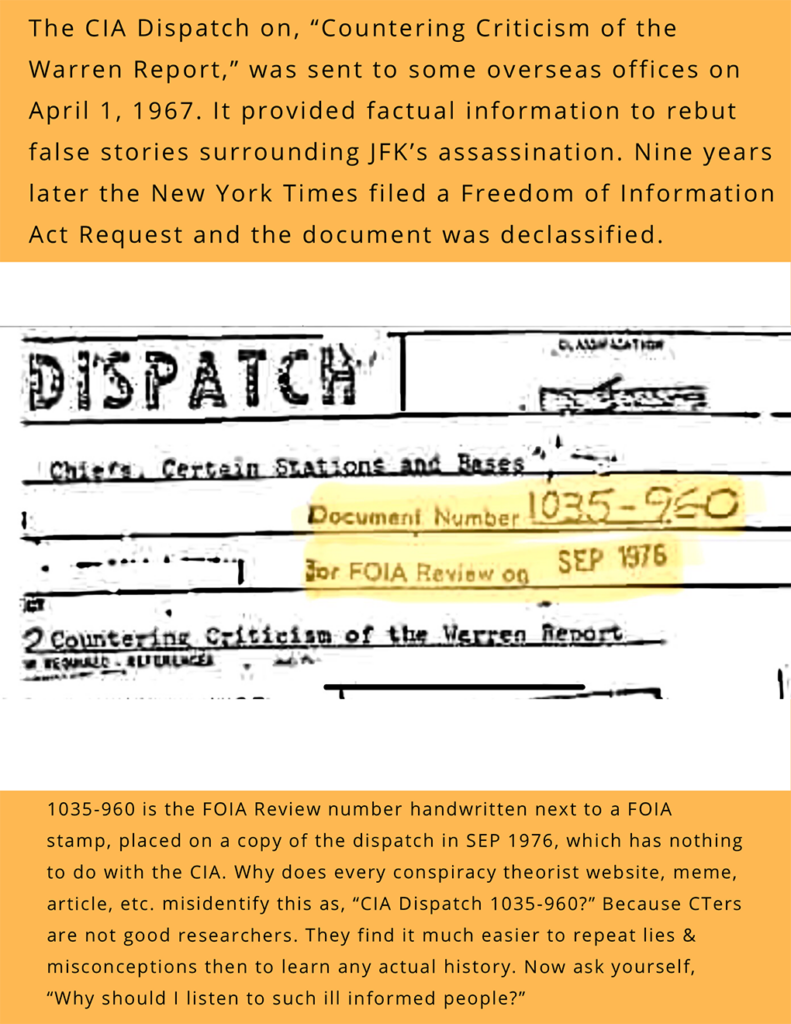
For the record, the terms conspiracy theory and conspiracy theorist have been used in a negative way since their inception and they predate the creation of the CIA by many decades. The Oxford English Dictionary records the first usage of “conspiracy theory” in 1909, in an article from the American Historical Review, which stated: “The claim that Atchison was the originator of the repeal may be termed a recrudescence of the conspiracy theory first asserted by Colonel John A. Parker of Virginia in 1880.” Other sources have found even older uses of the concept, but I find it a safe bet to stick with the OED.
Some conspiracy theorists have given up on the phony CIA connection to these terms altogether and instead claimed that society, for some unknown reason, just doesn’t appreciate what CTers actually stand for.
To hear the poor, downtrodden and oppressed conspiracy peddlers tell it, they are purveyors of truth, fighting the establishment and thinking critically for themselves. Sadly, as they see it, the rest of us are just too dumb or close-minded to understand and that is why we needlessly disparage them. Nothing could be further from the truth. Selectively removing facts from their context, distorting, twisting, and even making up evidence to bolster a baseless position are not the acts of critical thinkers. Predetermining your conclusion and then focusing on those details that seem to prove it, is not how you find the truth. And reflexively attacking the, “official story,” simply because it is official (i.e. because government personnel, scientists, historians, and other professionals have concluded it to be true) is not the definition of open-mindedness. As the great Groucho Marx once said, “Don’t be so openminded that your brains fall out.”
Unlike public officials, who are accountable to one another and the general public in various ways, CTers are accountable to no one, and they live up to that low standard. Anything they can successfully sell, to make a buck, or push their agenda, is fair game. And when you call them out on the crap they have thrown into the public discourse, they try to play the victim. Don’t fall for it, and don’t let them get away with it. If they were as great as they believe themselves to be, they wouldn’t create, fall for, or repeat lies like, “The CIA coined the term ‘conspiracy theory’ to discredit critical thinkers.” CTers have earned their negative image through their actions.
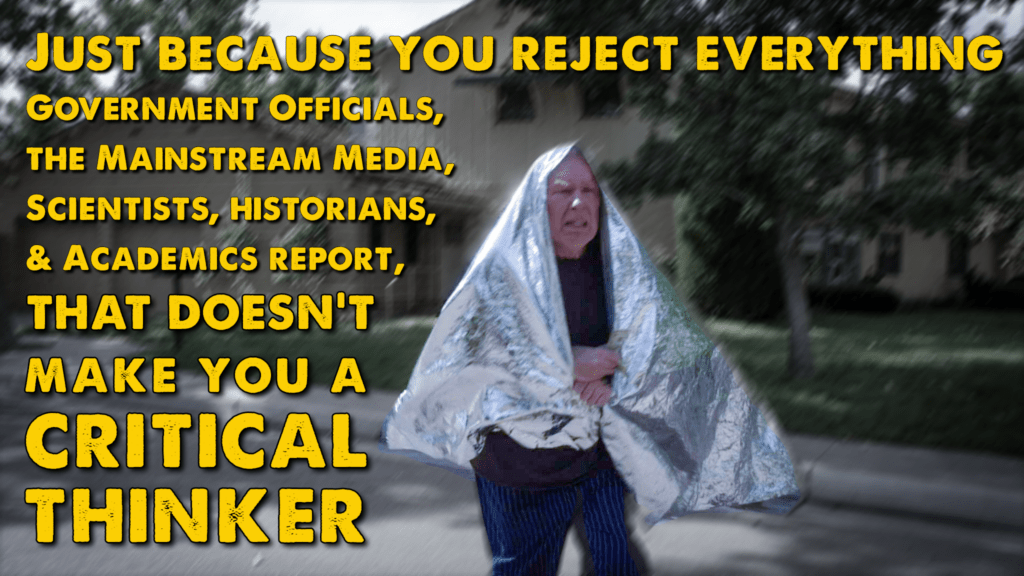
Recommended Reading: What is a Conspiracy Theory? There are no real Conspiracy Theories

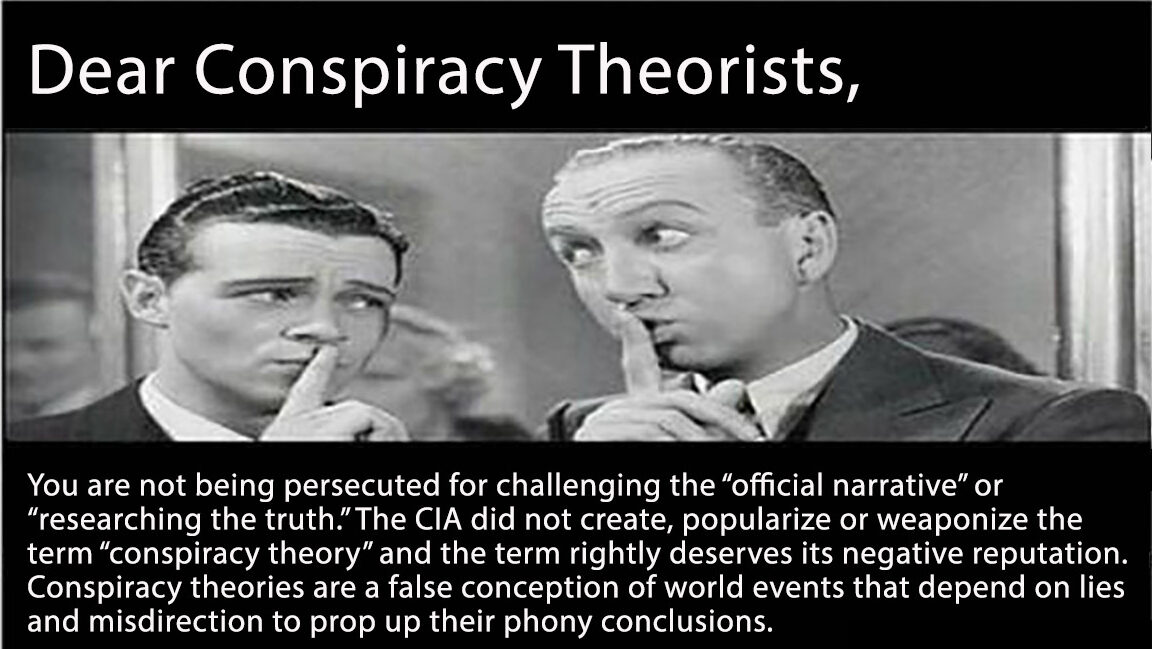

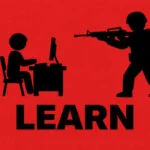

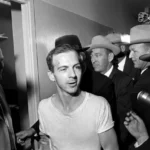
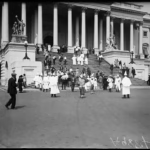


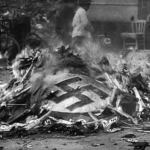
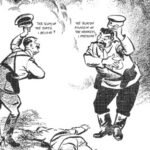
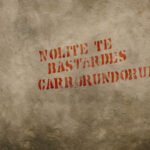

Leave a Reply